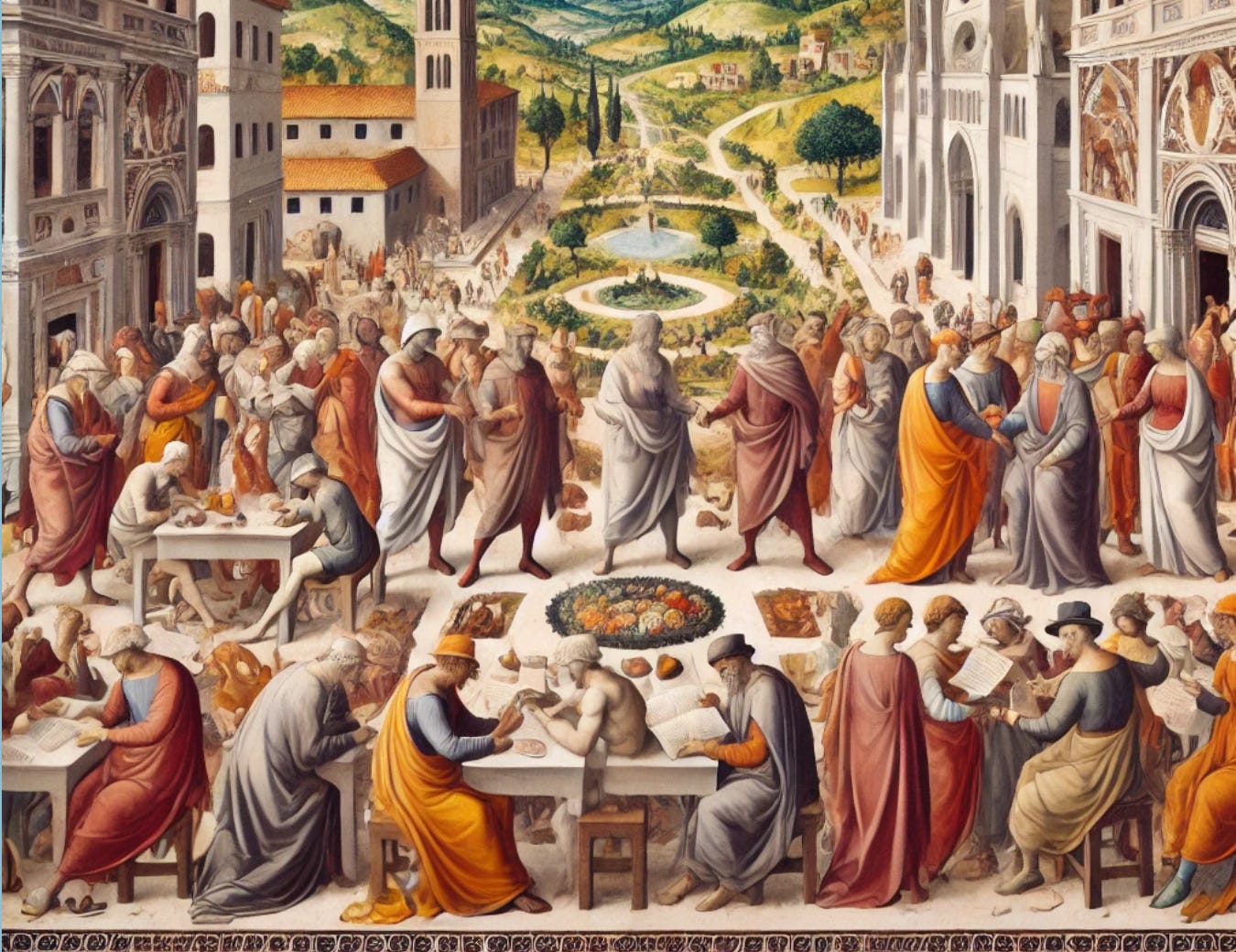14.1. The Problem of Governance: 1.0 DRAFT ms.
Of: "What Rough Beast?: The 21st-Century World in Political-Economy Polycrisis" :: DRAFT section 14.1 ms. of chapter 14 “Conclusion" :: 3980 words…
Of: "What Rough Beast?: The 21st-Century World in Political-Economy Polycrisis" :: DRAFT section 14.1 ms. of chapter 14 “Conclusion" :: 3980 words…
I don’t want to send in the plan for my next book—even though it is 70% written, what with things borrowed from elsewhere and things picked up off the cutting-room floor of Slouching Towards Utopia—until I have a strong sense of where I am going. So here is my attempt at a first draft of the first part of the concluding chapter of What Rough Beast?: The 21st-Century World in Political-Economy Polycrisis:
Accelerating technological change has had a profound impact on societies, and how they can and ought to be governed. Especially in the post-1870 2% annual technological growth rate Schumpeterian creative-destruction era, the focus of good governance must be on attempting to strengthen and nudge the processes that produce the new ways of thinking about and organizing societies necessary to cope with the unprecedented pace of development. Feudal society to gunpowder imperialism, commercial to steampower and applied-science, and mass-production to global value-chain and now attention-info-biotech societies—each transition to the next has required. Good governance will focus on: maintaining peace, advancing technology, recognizing and managing the destructive aspects of creative destruction, ensuring equitable distribution of the growth dividend, preventing obstruction by powerful societal groups, and supporting the continuous rewriting of societal frameworks. The ride has not been easy: the wheels have come off many times since 1750. But the ride is only getting rougher: The cost of global warming will rob us of a large share of our technological growth dividend over the next two generations, leaving us with less room to redistribute, and adjust, and compensate, and buy off coalitions of the societally powerful who seek to block the forces that would increase human wealth. And that is not all that shadows us.
Technological Acceleration: Recall that Societies of Domination pretty much spanned the globe from the beginnings of our written records in the year -3000 up to a time not in living memory, but in a time in the living memory of those whom our oldest today met when they were young children. In those, human technological progress was slow. So human societies changed little over a lifespan: perhaps 5% growth in technology over a century. Consciousness that societies were different over time was partial, and vague. Consider, for example, Jacques de Longuyon’s 1312 poem “The Vows of the Peacock”, in which he writes:
The book now tells of the Nine Worthies,
Who were of ancient times the great lords,
The noble knights, valiant and wise,
Known for their prowess with the sword.
Three pagans, three Jews, three Christians strong,
Each famed for deeds of righting wrong…
The nine are, in historical (or semi-historical) order: Yehoshua of Israël, Hektor of Troy, King David of Judah-Israël, Alexander the Great, Yehudah HaMakabi, Gaius Julius Cæsar, King Arthur of Britain, Charlemagne, and Godefroy de Bouillon (first ruler 1099-1100 of the Latin Kingdom of Jerusalem). Very different people, ruling in very different ways over very different societies. Yet in Jacques’s eyes, they are all on the same single level: all mediæval “knights, valiant and wise… prowess with the sword… famed for deeds of righting wrong”.
But, as I have stressed, after 1500 things change.
The pace of technological change accelerated, reaching 2% per year or more after 1870.
We have, since then, seen more technological change in 2.5 years than Societies of Domination saw in a century, and more technological advance in a generation than they saw in a millennium. The first inklings of this were seen around 1600. It was in 1602 Tomasso Campanella wrote his City of the Sun, in which he said: “If you knew what our astrologers say of the coming age, and of our age, that has in it more history within 100 years than all the world had in 4,000 years before! of the wonderful inventions of printing and guns, and the use of the magnet…” Technological change of this magnitude was going to have powerful impacts. It was going to require new ways of thinking about human life and purpose and new ways of organizing the human race. When human technological competence to command nature and coöperatively organize ourselves was much greater and growing much faster than before 1500, society had to be very different, and could not be governed in the same old ways.
A Rough Periodization: Karl Marx and Friedrich Engels, writing their Communist Manifesto in 1848, saw what humanity was then already starting to have to deal with. It was the
Keep reading with a 7-day free trial
Subscribe to Brad DeLong's Grasping Reality to keep reading this post and get 7 days of free access to the full post archives.





